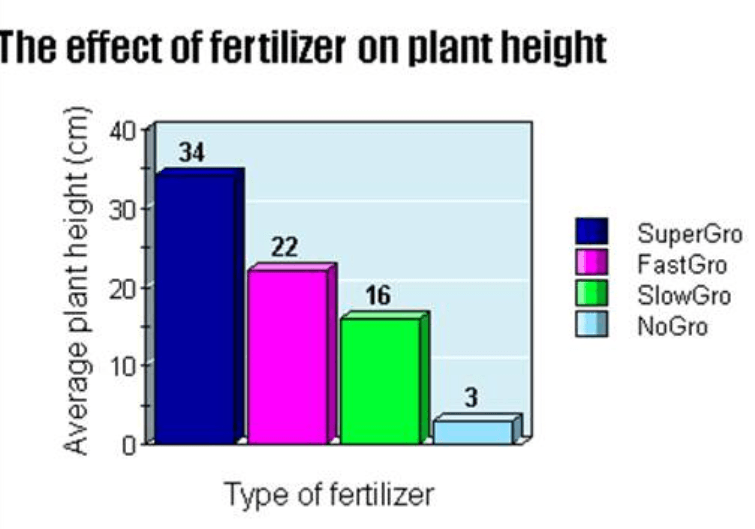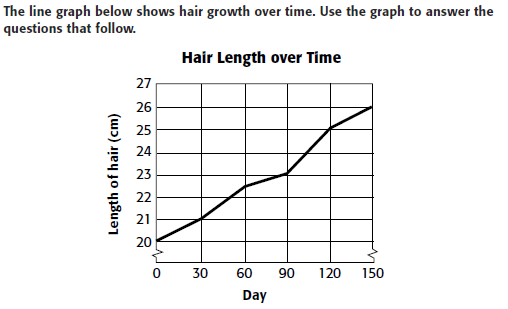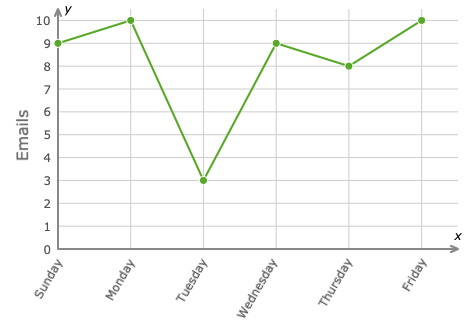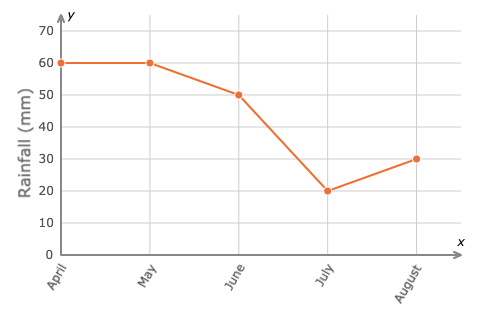An experiment was performed to see if the amount of coffee consumed affected heart rate.What is the independent variable?
a. amount of coffee
b. heart rate
c. type of coffee
d. temperature of the coffee
What is a. amount of coffee?
What is the independent variable?
a.Type of fertilizer
b. Average plant height
c. FastGro
d. none of the above
What is a. Type of Fertilizer?
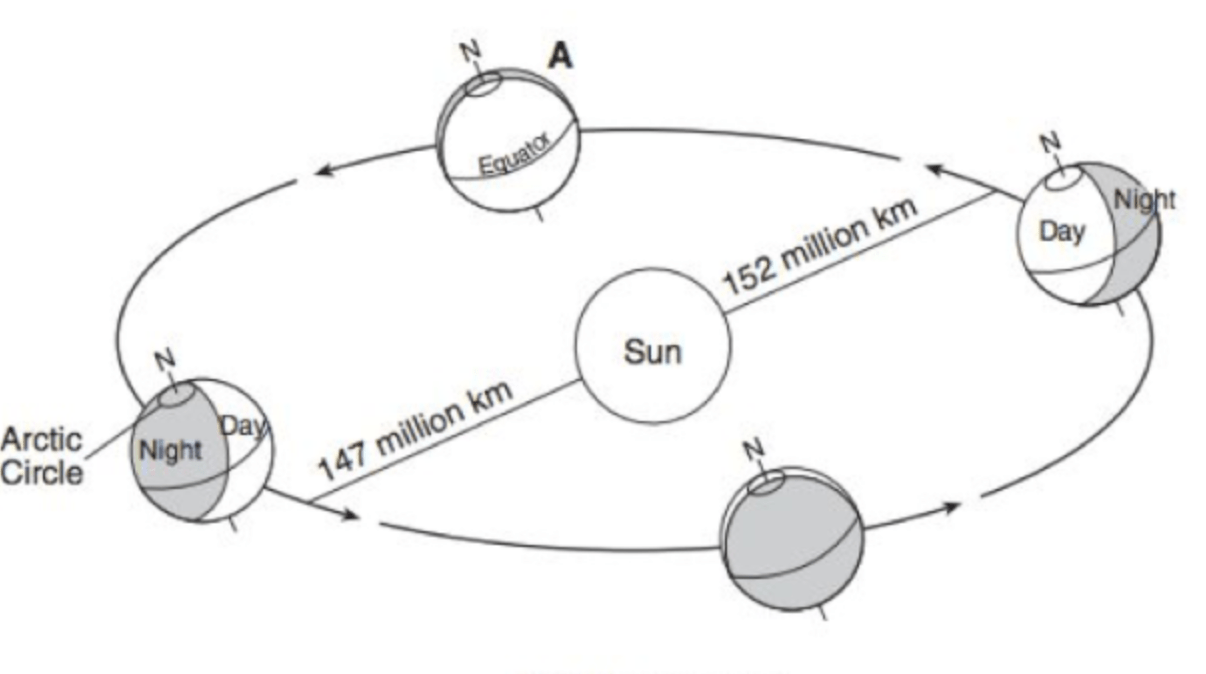
The Earth axis is tiled ______ degrees.
a. 50
b. 90
c. 23.5
d. 360
What is c. 23.5?
What evidence has led astronomers to infer that the universe is expanding? Choose all that apply.
a. blue shift of distant galaxies
b. red shift of distant galaxies
c. cosmic background radiation
d. TikTok footage of the actual Big Bang
What is b. and c.?
The Sun creates its energy using this process --
a. Nuclear fission
b. Hydropower
c. Nuclear fusion
d. Combustion
What is c. Nuclear fusion?
Five groups of rats are fed identical diets except for the amount of vitamin A that they receive. Each group gets a different amount. After 3 weeks on the diet, the rats are weighed to see if the amount of vitamin A received has affected their weight. The independent variable is.........
a. type of rat
b. amount of vitamin A
c. amount of food
d. type of food
What is b. amount of vitamin A?
How long was the hair on Day 60?
a. 0 cm
b. 23 cm
c. 22.5 cm
d. 26 cm
What is 22.5 cm?
The latitude of Cannes, France is approximately......
a. 45 N
b. 30 N
c. 0 N
d. 75 W
What is 45 N?

A cloud of dust and gas, the birthplace of stars....
a. Main sequence star
b. Nebula
c. Red Giant
d. Black Hole
What is b. Nebula?

Identify the phase of Moon D.
a. Waning gibbous
b. Full moon
c. Waning crescent
d. 3rd quarter
What is c. Waning crescent?
Different amounts of carbon dioxide were added to fish tanks. After 1 week the number of fish still living were counted. What is the dependent variable?
a. amount of carbon dioxide
b. # of living fish
c. type of fish tank
d. temperature of water
What is b. # of living fish?
Which 2 days were 9 emails received?
a. Sunday
b. Monday
c. Wednesday
d. Thursday
What is a. Sunday and c. Wednesday?
The mass of the object would be.....
a. 500 g
b. 542.4 g
c. 540 g
d. 542 g
What is 542.4 g?

The image depicts the two paths a star can take. Which property determines the path a star takes?
a. temperature
b. color
c. mass
d. volume
What is c. mass?
The frozen dirty snowballs orbit the Sun in the Kuiper Belt.
a. Meteors
b. Asteroids
c. Comets
What is c. Comets?
An experiment is set up with ten pots to test the effective of fertilizer on plant growth. 5 pots have fertilizer added to the soil, 5 pots do not have fertilizer added to the soil. Each pot has 1 spider plant and 5 cups of soil. The pots are watered once a week with 1/2 cup of water. Amount of water would be what type of variable?
a. independent
b. constant
c. dependent
What is b. constant?

What is the approximate temperature at an altitude of 70 miles?
a. -120
b. 120
c. 0
d. -40
What is c. 0?
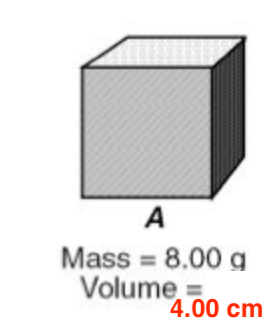
What is the density if Cube A?
a. 32 g/cm3
b. 12 g/cm3
c. 2 g/cm3
What is c. 2 g/cm3?
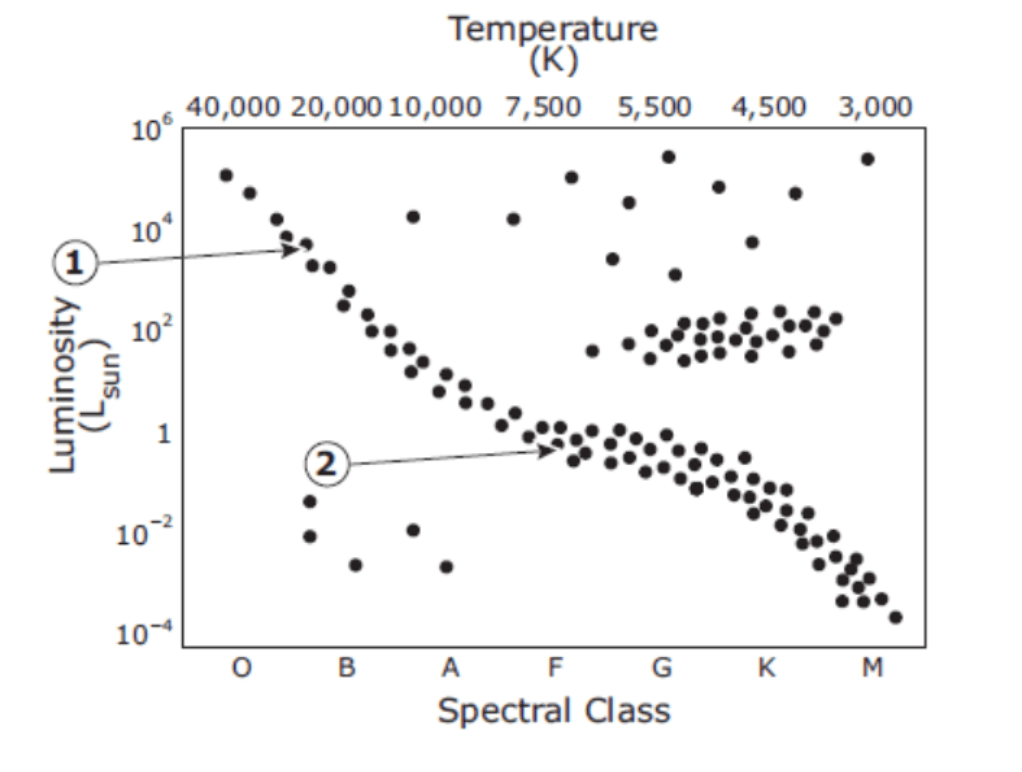
Based on the diagram how does the brightness of Star 1 and Star 2 compare?
a. Star 1 is less bright
b. Star 1 is more bright
c. the brightness is the same
d. Star 2 is more bright
What is b. Star 1 is more bright?
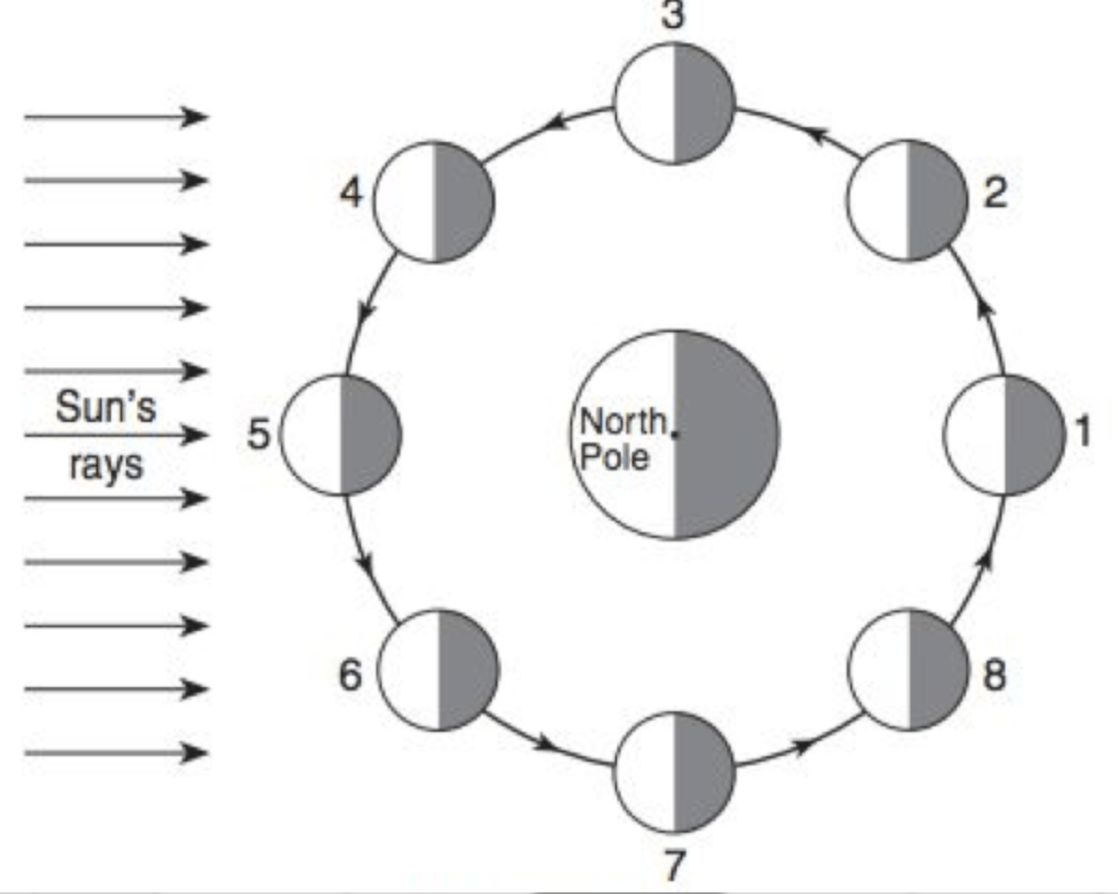
Which of the Moon's positions is where a lunar eclipse might be observed from Earth?
a. 5
b. 7
c. 1
d. 3
What is c. 1?
For the science fair, Tina asks the question “Does caffeine increase the heart rate of an earthworm?” In Test 1, she measures the heart rate by looking at the earthworm under a microscopes, the earthworm has a heart rate of 50 bpm (beats per minute). In Test 2, she places a few drops of caffeine on the earthworm’s skin and measures the rate again. In this test, the heart rate is 68 bpm. What is the manipulated (independent) variable in this experiment?
a. caffeine
b. earthworm
c. heart rate
d. microscope
What is a. caffeine?
What was the total rainfall for April, May, June, July and August?
a. 220 mm
b. 60 mm
c. 190 mm
d. 210 mm
What is a. 220 mm?
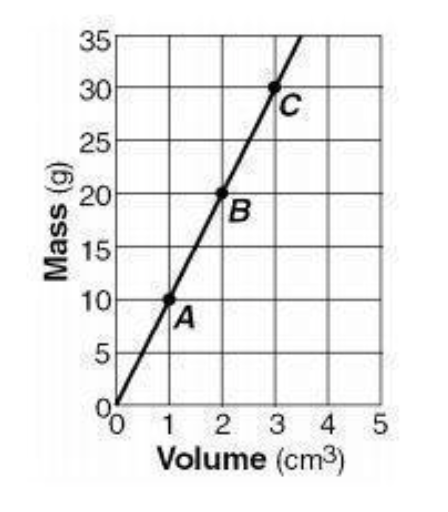
What is the density of object B? (D=M/V)
a. 10 g/cm3
b. 0.1 g/cm3
c. 40 g/cm3
d. 30 g/cm3
What is a. 10 g/cm3?
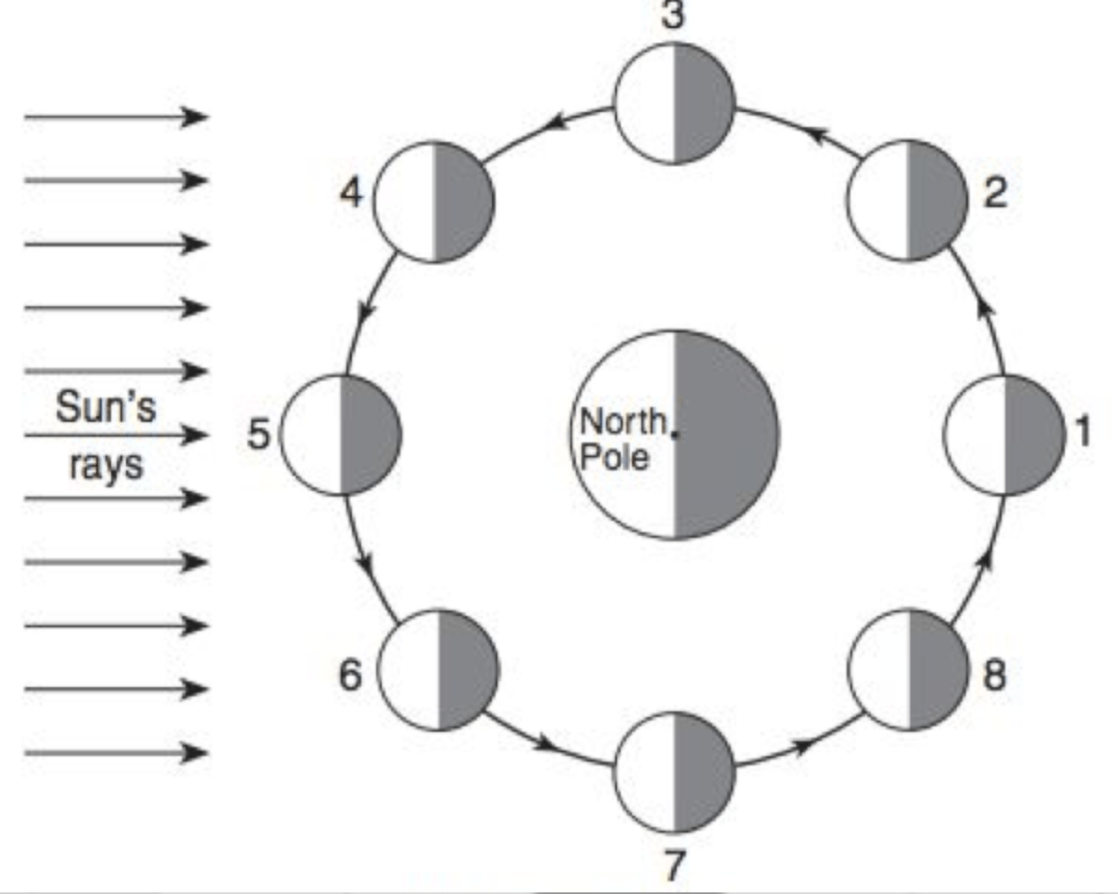
Identify the moon phase occurring at position 8?
a. Waxing gibbous
b. Waning gibbous
c. Waxing crescent
d. Waning crescent
What is a. Waxing gibbous?

In addition to Earth's orbit, which planet's orbits are shown?
a. Jupiter and Mars
b. Mercury and Mars
c. Venus and Mars
d. Mercury and Venus
What is c. Venus and Mars?
